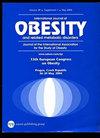Weight loss as a predictor of reduced survival in patients with lung cancer: a systematic review with meta-analysis
IF 4.2
2区 医学
Q1 ENDOCRINOLOGY & METABOLISM
引用次数: 0
Abstract
The impact of weight loss on survival outcomes remains challenging in patients with lung cancer. The objective of this systematic review with meta-analysis was to assess the association of weight loss with survival outcomes in these patients. Two authors conducted a comprehensive literature search of PubMed, Web of Science, and Embase databases up to January 15, 2024. Observational studies that assessed the weight loss as a prognostic factor of overall survival and progression-free survival in patients with lung cancer were included this analysis. Weight loss defined by at least 5% loss of total body weight over 2 months. Fifteen studies involving 14,540 patients with lung cancer were included. Pooled adjusted hazard ratios (HR) indicated that weight loss was associated with reduced overall survival (HR 1.65; 95% confidence intervals [CI] 1.43-1.91) and progression-free survival (HR 1.40; 95% CI 1.15–1.71). Subgroup analysis showed that weight loss significantly predicted overall survival, regardless of study design, lung cancer subtypes, clinical stage of cancer, weight loss definition, or length of follow-up. Weight loss is a significant predictor of overall survival and progression-free survival in patients with lung cancer. Weight monitoring has potential to improve prognostication of survival outcomes for these patients.

体重减轻是肺癌患者生存率降低的预测因素:系统综述与荟萃分析。
背景:减轻体重对肺癌患者生存结果的影响仍具有挑战性。本系统综述和荟萃分析的目的是评估减肥与这些患者生存结果的关系:两位作者对截至 2024 年 1 月 15 日的 PubMed、Web of Science 和 Embase 数据库进行了全面的文献检索。本分析纳入了将体重减轻作为肺癌患者总生存期和无进展生存期预后因素进行评估的观察性研究。体重减轻的定义是两个月内总重量至少减少 5%:共纳入 15 项研究,涉及 14,540 名肺癌患者。汇总调整后的危险比(HR)显示,体重减轻与总生存期(HR 1.65;95% 置信区间 [CI] 1.43-1.91)和无进展生存期(HR 1.40;95% CI 1.15-1.71)的降低有关。亚组分析显示,无论研究设计、肺癌亚型、癌症临床分期、体重减轻定义或随访时间长短如何,体重减轻都能显著预测总生存期:结论:体重减轻可显著预测肺癌患者的总生存期和无进展生存期。结论:体重减轻是肺癌患者总生存期和无进展生存期的重要预测指标,体重监测有可能改善这些患者的预后生存结果。
本文章由计算机程序翻译,如有差异,请以英文原文为准。
求助全文
约1分钟内获得全文
求助全文
来源期刊

International Journal of Obesity
医学-内分泌学与代谢
CiteScore
10.00
自引率
2.00%
发文量
221
审稿时长
3 months
期刊介绍:
The International Journal of Obesity is a multi-disciplinary forum for research describing basic, clinical and applied studies in biochemistry, physiology, genetics and nutrition, molecular, metabolic, psychological and epidemiological aspects of obesity and related disorders.
We publish a range of content types including original research articles, technical reports, reviews, correspondence and brief communications that elaborate on significant advances in the field and cover topical issues.
 求助内容:
求助内容: 应助结果提醒方式:
应助结果提醒方式:


